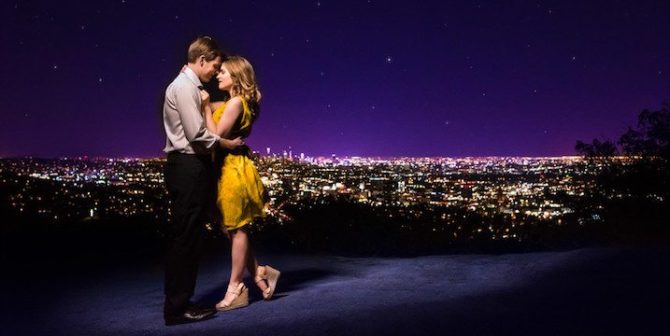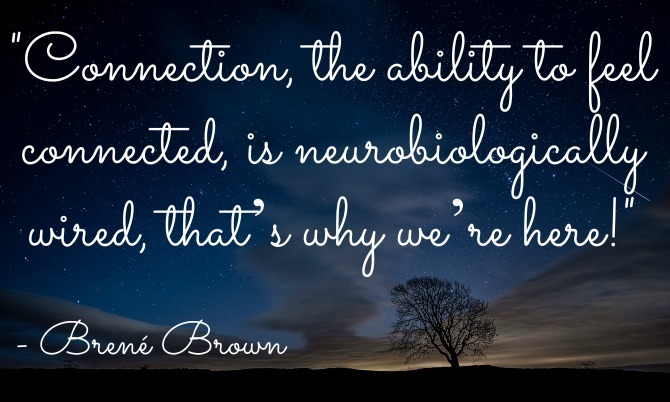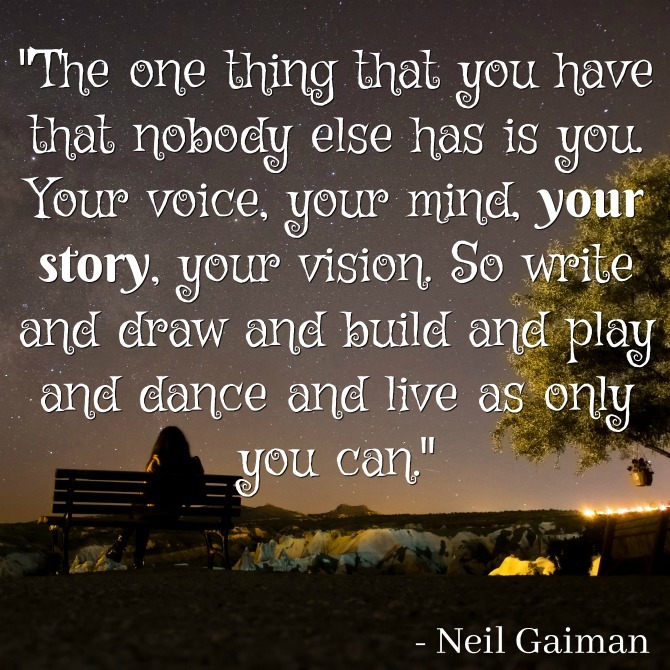A few weeks ago I had an intriguing discussion with my father-in-law about the movie La La Land. I was telling him how I loved the movie, despite the sad ending, and he said that this was a perspective he couldn’t understand. “There’s enough sadness in the real world that I don’t want it in my movies too,” he told me. “Why would you watch something that left you feeling sad at the end?”
His question, though meant rhetorically, has stuck with me. Why DO I watch movies (or TV shows or read books) that leave me feeling sad? And for that matter, why do I—why do we—engage with any stories at all?

I’ve had a pretty severe case of writer’s block lately. It’s not for a lack of words (we all know I have plenty of those), or even a shortage of topics to explore. No, my block stems from my own insecurities: I’ve been plagued by the nagging feeling that none of it matters. Why would anything I write hold meaning for anyone else? What do I have to say that hasn’t already been said—more articulately, and by someone with more credentials, better ideas, a superior sense of humor. . . ?
It was with these thoughts swirling in the back of my mind that I returned to Tom’s inquiry about the purpose of story. It’s a big question, one that extends all the way back to the very first storytellers and possibly to the beginning of mankind. And it’s a question with as many answers as there are stories and even individuals who read/watch/listen to/consume them. Stories exist to teach us something, about the world and about ourselves. They exist to entertain. They exist to help us make meaning out of the universe and our place in it. They exist to help us feel connected. They exist to keep us from feeling alone.
As humans we are wired for connection and community. This intrinsic desire is at the root of nearly every relationship and, to some extent, every conversation. Ideally this community is found through flesh-and-blood interactions, through sidewalk chats with our neighbors, through coffee dates with lifelong friends, through mealtime conversations over the family dinner table. But community (or at least a semblance of one) can be found in other ways too. Our search for connection explains the existence of social media, fan clubs, sports affiliations. . . . And, I believe, it is one of the primary reasons that we are drawn to story.

When we listen to the stories of people in our own lives, it helps us to understand and feel connected to them. Bonds are formed, community is established and then solidified. When we experience second-hand the stories of strangers, even fictional ones, it also helps us feel connected—not necessarily to the subject of the story or even to the storyteller, but to ourselves, our emotions, our experiences. The stories provide a vehicle through which we come to understand our own existence, thereby helping us to feel connected to ourselves and to everyone else.
My principal role as a blogger is to tell stories, specifically my own. My story might not be the most exotic or the most inspirational. And sharing it may sometimes make me feel uncomfortable or even vain. But I know that the act of sharing my story helps me to feel connected to my readers and to the world at large. My hope is that reading my story will help you feel connected too—not just to me, but also to your own story, your own experience, your own community, and maybe to God. Perhaps it will even inspire you to share pieces of your story, too.
Our lives were not meant to be lived in isolation, nor are our stories intended to be kept to ourselves. THAT is why I share my own story, and why I eagerly open my eyes and ears and heart up to the stories of others. Because I’m fighting to believe (and am nearly convinced) that it does matter. Maybe more than any of us will ever know.

[…] was inspired by Jamie’s message. I, too, am a firm believer in the power of story. This conviction that our stories matter, that amazing things can happen when we share our stories […]
[…] 24. There is power in hearing others’ stories and sharing our own. […]